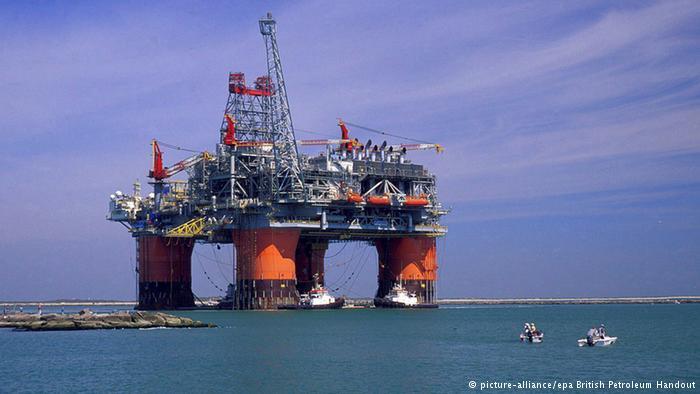“The Stone Age didn’t end because of a lack of stones,” Franz-Josef Radermacher tells an amused audience, implying that innovative energy solutions could be a better way to deal with the current energy crisis. Radermacher, director of the Research Institute for Applied Knowledge Processing, is discussing resource crunches and possible solutions with three other panelists at the Global Media Forum 2015 discussion round called Resource wars: Implications for foreign policy. An overcrowded world Contemporary debates on the future of Planet Earth and sustainability in particular sound like dark prophesies signaling some kind of Armageddon. By 2050, estimates predict there will be nine billion people on this planet, we will have less access to resources and face tremendous security risks. But how real are these scenarios? “Resource wars…are very rare,” says Günter Nooke, Commissioner for Africa at the German Ministry for Economic Development (BMZ). In many cases, Nooke says, “conflicts exist already and conflict parties use natural resources as one means among many others to finance themselves and rule the conflict.” Using resources as a bargaining tool in international policy is not unknown. Russia has stopped gas supplies in the past to Europe purely for foreign policy reasons. Energy independence is therefore a big concern for European countries, which import a billion euros worth of energy every day, according to Jan Kallmorgen, partner with Global Practice and a founder of Atlantic Initiative Germany. Reconciling the thirst for energy with justice for workers Unfortunately, development needs mean that companies greedy for profit sign contracts with local workers which often put the latter at a disadvantage. This is particularly true for African nations where European, Chinese and Indian companies are vying for rare earths, oil and gas. Resources can be equally shared if everybody plays by the same rules, says Kallmorgen of Global Practice. Bad working conditions are often the result of companies that don’t care for workers’ rights at all, he notes. Transparency and a strong legal basis for mining rare earths could be a way to circumvent labor issues and ensure that everyone gets a fair share of the deal, believes Lundeg Purevsuren, minister of foreign affairs of resource-rich Mongolia. The Mongolian government is committed to “inclusive growth, transparency and good governance” and needs to build its own model for mining minerals, he said. Contradictory actions Resource wars and foreign policy are not about Europe and the developed world versus Africa or Latin America or India and China because each of these countries has its specific interests, needs and elites, who, in turn, follow their desires. What the world – and developed countries in particular – need to address is the contradiction between their actions and their promises towards a green planet, says mathematician and economist Radermacher. We will have to debate the issue of transparency in the markets and make them more inclusive and green, he emphasizes. In a few decades from now, hundreds of millions of people will die of hunger and lack of water if we don’t economize and develop new strategies for harnessing energy. The quest for resources and energy will be like surgery on a living body. Quoting Mahatma Gandhi, Amrita Cheema, DW journalist moderating the panel says, “The world has enough for everyone’s need, but not enough for everyone’s greed.”











